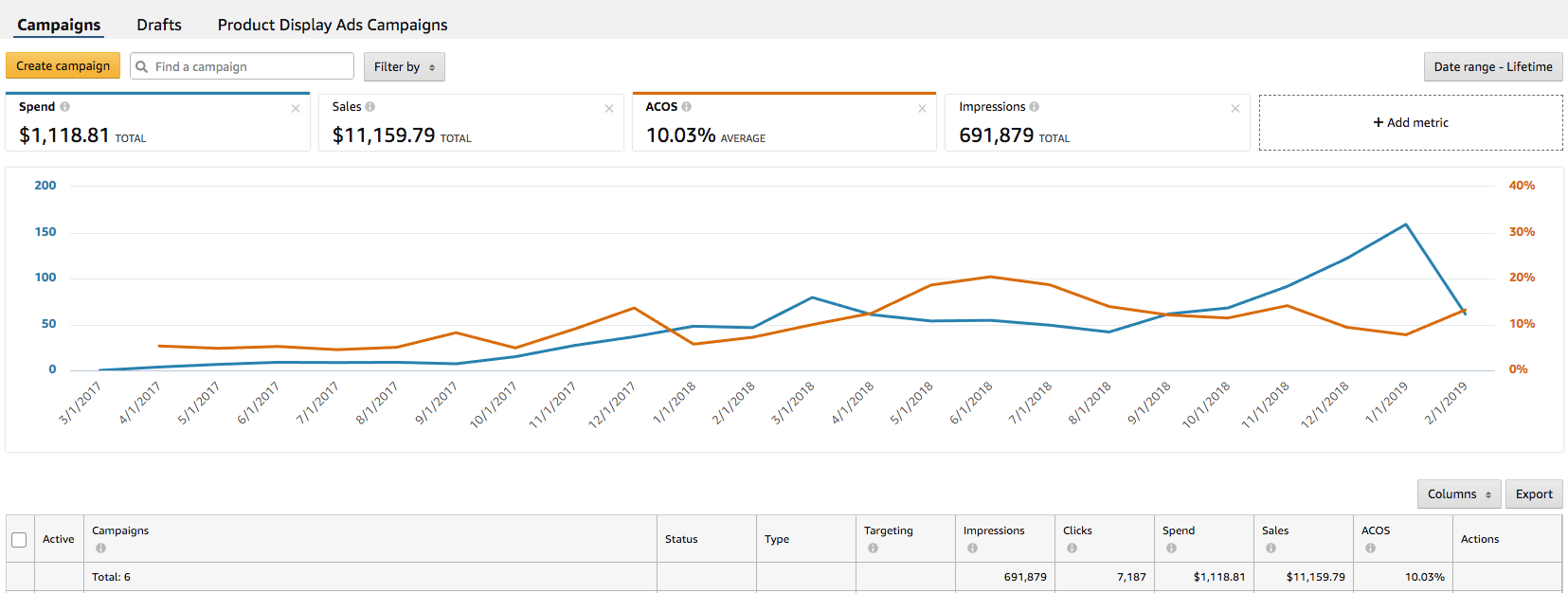 |
| Courtesy Jane Friedman |
I’ve been
actively advertising my books on Amazon’s advertising platform for a couple
years now. Originally it was called AMS which stood for Amazon Marketing
Services but now it’s called simply, Amazon Ads. Who gives a crap what they
call it? Anyway, I digress.
Unlike the books I publish with real publishers,
including the Amazon Publishing imprint, Thomas & Mercer, I also have a
stable of 40+ books, novellas, and short stories that don’t move unless you put
them in front of potential buyers. The old rule applies here. How can anyone
buy your product if they don’t know it exists?
Enter Amazon
Ads. Back in the early days, a few of us made some serious bucks selling eBooks
on Kindle. I’d sold hundreds of thousands of them, and this led to some major
publishing deals. But as the 2010s faded, many of us were finding it harder and
harder to sell our books. Theoretically anyway, Amazon Ads could regain the
visibility we’d lost with the influx of thousands of new authors.
Not knowing
what I was doing, I created sponsored ads for a whole bunch of my books and
while sales picked up, it soon became apparent that I was spending more than I
was making. Time to educate myself. I took a course on Ads for Authors and it
educated me on the ins and outs of making effective ads. It also told me how
much to spend or not to spend. So far so good. But it also taught me something
that was far more important. Advertising on Amazon is not necessarily driven by
feeding it cash, it is driven by analyzing the data.
Now here’s
where things get real sticky for me. I am not a spread sheet guy. I am not a
data analyst. I cringe when it comes to math, and I am so dumb, I didn’t even
know what an ACOS was before I took the course. ACOS is the most important
statistic to pay attention to, because it tells you the Average Cost per click.
That is, how much you’re paying every time someone clicks on your ad. If you’re
ACOS is above %100 percent, you are losing money. In theory that is. BUTTTT…and
this is a big but…if you’re in Kindle Unlimited, an ACOS a little above 100%
is okay since it doesn’t count page reads.
Anyway, it
turned out that for two years, my average ACOS was something like 600%. No
wonder I was shaking my head at how much money was going out as opposed to
coming in. So what to do?
I’m now
stopping every ad that doesn’t have an average ACOS of 200% or lower. I’m going
for a baseline here. I’m also going to concentrate only on books that are
pilots of a long tail series. That way, I might attract readers who will give
me a read through. I will also check my ads every day, as opposed to once per
week. As I begin to achieve some success, I will scale up, and right the ship,
as they say. After all, I’m in this to make some money, not hand it over to Mr.
Bezos.
Be careful
with Amazon Ads. Do them wrong, and you will lose your shirt and your pants. Do
them right, and you can make build a nice little fortune.




